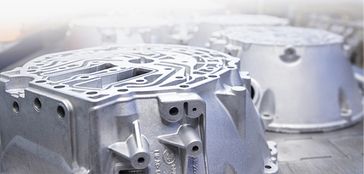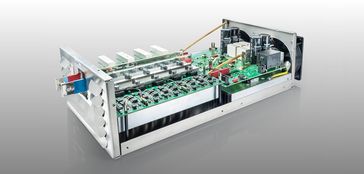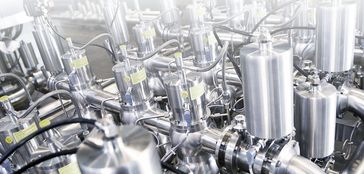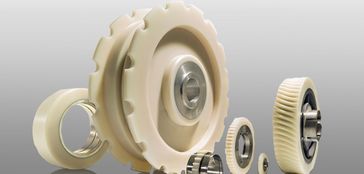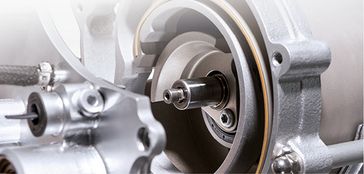When multiple households share a heating network, they not only save money, but usually also reduce their emissions of climate-damaging CO2. The fact that such a network also has benefits for industrial enterprises is demonstrated by an infrastructure project of the Handtmann Group of Companies. At the Aspach industrial estate, up to 1,200 tonnes of CO2 are saved per year – equivalent to the CO2 emissions caused on average by driving 7.65 million kilometres in a car.
Handtmann has been operating its site at the Aspach industrial estate in Biberach since 1999. Today, four Handtmann companies produce – among other things – filling and portioning systems for foodstuffs, cast plastic parts and components for the automotive industry there. Along Hubertus-Liebrecht-Straße and Aspachstraße, on a total area of 153,000 m2, stand five administration and production buildings. Instead of supplying each building with heat, cooling and compressed air individually, Handtmann has developed an overall concept for an integrated network that it is implementing step-by-step.
Waste heat is used for heating and hot water preparation
With a project of this kind, it is a major challenge for the planners to take the different development opportunities of a production site into account. The project team at Handtmann therefore defined multiple development stages, which can each be implemented as needed. Since the beginning of the project in 2017, Handtmann has already succeeded in linking the hot water circuits of all the buildings. In addition, the individual compressed air systems that are required in all the production halls have also been interconnected. In this way, compressed air can be optimally distributed to the production facilities. The generation of compressed air produces waste heat, which is fed into the hot water system and can thus be fully utilised. This has reduced the generation of hot water to such an extent that it has already been possible to save on two heating plants. The integrated energy network in Aspach is supplemented by a highly energy-efficient groundwater cooling system, which cools machinery, offices, meeting rooms and production halls in several buildings.
The project has already paid off
The effort required to plan and implement such a project is considerable, but it has already proven worthwhile for Handtmann. For example, thanks to the integrated system, the company no longer has to operate and maintain so many individual, small hot water boilers and air compressors. Due to the use of waste heat, less energy is required, and that energy can be used more efficiently. Furthermore, Handtmann will be spared the need to make investments in multiple expensive, decentralised systems in future.
Natural gas combined heat and power unit in the pipeline
The planning team is currently already working on the next development stage: In summer 2021, Handtmann will put a natural gas combined heat and power unit into operation in Aspach. This means that the company will be able to produce electricity and use the waste heat that is produced when converting natural gas into electrical energy for heating and hot water preparation. The existing heating systems will therefore be supplemented by a high-efficiency unit.
High CO2 savings benefit the climate
The overall project will enable Handtmann to achieve an annual reduction in CO2 emissions of up to 1,200 tonnes. This is equivalent to the amount produced by an average car over a distance of 7.65 million kilometres – or 190 times around the globe. “The project shows that, at Handtmann, we not only focus on efficiency and climate protection with regard to our products, but also our sites. It is important to us to use innovative technologies in such a way that they have a positive impact,” emphasises Thomas Handtmann, Managing Director of Handtmann Holding.

